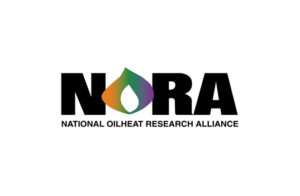Congress Urged to Renew NORA
Trade groups and 10 U.S. senators and representatives called on Congress to permanently reauthorize a check-off program that funds the National Oilheat Research Alliance. The current authorization is set to expire on Feb. 6, 2019.
The trade groups include the New England Fuel Institute, state trade associations, the National Association of Oil & Energy Service Professionals, and the National Biodiesel Board. They wrote letters to the Senate Committee on Agriculture, Nutrition and Forestry and to the House Committee on Agriculture.
Here is the text of the letter from NEFI, Maine Energy Marketers Association, Massachusetts Energy Marketers Association, Connecticut Energy Marketers Association, Energy Marketers Association of New Hampshire, Oil Heat Institute of Rhode Island, and Vermont Fuel Dealers Association, dated July 24:
On behalf of New England’s mostly small, family-owned and operated heating oil retailers and the more [than] two million homes and businesses they serve, we write in support of Section 12627 of the Agriculture Improvement Act of 2018 (also known as the “2018 Farm Bill,” H.R. 2), as passed by the Senate, which reauthorizes the National Oilheat Research Alliance (NORA).
Since its creation by Congress in 2000, NORA has facilitated the seamless introduction of sustainable biofuels [into] the heating oil market. Nationwide, the industry serves more than 6.3 million homes, or an estimated 16 million consumers. These consumers now benefit from a biodiesel-blended product, commonly referred to as Bioheat Fuel, which can be used safely in existing appliances and equipment with little or no modifications. In other words, the infrastructure to store, deliver and utilize this renewable heating fuel is already in-place and ready-to-go.
Blends of five-percent biodiesel or greater are now in widespread use throughout the Northeast. This includes New England, where more than two million homes rely on the warmth, comfort and reliability of today’s oilheat. That is nearly 40% of all homes in the region. NORA has successfully tested—and some marketers now offer—blends of up to twenty percent. It is also field-testing an advanced biofuel in New England that can be derived from woody biomass, agricultural waste and other cellulosic feedstocks. This biofuel, known as ethyl levulinate, can operate at even higher blends and in very cold climates, and establishes a pathway to zero-emissions heating fuels by 2050.
Bioheat also provides the industry with an opportunity to contribute towards aggressive state and local carbon-reduction efforts, including new laws requiring the sale of renewable fuels, and provides an effective alternative to carbon taxes. Rhode Island now requires biodiesel-blends of at least five-percent. Massachusetts has approved regulations offering alternative energy credits to retail heating oil marketers that sell biodiesel blends of 10% or higher effective January 1, 2018. Other states in New England are considering similar requirements or incentives.
NORA’s efforts on Bioheat have not only benefitted our energy and environmental security, but also the American farm economy. The heating oil industry provides feedstock growers and biodiesel producers an attractive market during the off-season for on-highway demand, which peaks in the summer. According to the National Biodiesel Board, the biodiesel industry supports 64,000 jobs, $11.42 billion in economic impact, and $2.54 billion in wages paid. [See footnote 2.] NORA estimates that 18% of these benefits can be attributed to biodiesel-use in the heating oil market. [See footnote 3.] This translates to 11,500 jobs, $2 billion in economic impact, and $450 million in wages paid.
NORA has also made possible the near elimination of sulfur from heating oil. On July 1, 2018, all six New England states joined New York in requiring ultra-low sulfur (15-parts-per-million) heating oil, which dramatically reduces sulfur dioxide and particulate emissions. It will also enable the introduction of oilheat appliances designed to utilize this new fuel that exceed 90% AFUE [annual fuel utilization efficiency]. This builds on a 30% reduction in fuel consumption achieved since NORA was created, translating to an average $600 in annual savings per consumer. Further, a NORA-administered rebate program established in the last reauthorization has financed thousands of heating system and tank upgrades.
In addition, NORA’s workforce development programs have trained thousands of technicians in the safe and efficient installation and maintenance of oilheat appliances and related equipment. NORA certification programs are the standard for oilheat education in New England and throughout the Northeast. These programs provide continuing education to thousands of well-paid service technicians, efficiency auditors and other home energy professionals in the proper installation and maintenance of oil-fired appliances and related equipment, and the benefits of Bioheat fuel.
Like dozens of check-off programs for agricultural products and propane (a competing fuel), NORA is paid for by a nominal, uniform assessment on retail heating oil dealers. Two tenths of [one] cent ($.002) per gallon is collected when they receive product from their wholesaler or at a terminal rack and then remitted to NORA. The check-off has widespread support among these businesses. They understand the important role NORA plays in providing more efficient and environmentally secure products to their customers and for the proper training of service technicians.
In the furtherance of its many benefits for the thousands of small Main Street energy businesses we represent, the millions of homes they service, and the farm economy they support, we ask that you include language to reauthorize NORA in the final version of the 2018 Farm Bill.
Thank you in advance for your consideration.
1: Bioheat is a registered trademark of the National Biodiesel Board
2: Meyer, Cal, Testimony on Behalf of the National Biodiesel Board, House Ways & Means Committee, Subcommittee on Tax Policy; Hearing on Expired Tax Provisions, March 14, 2018, p.2.
3 NORA Biofuel Report to Congress, May 13, 2015, p. 15
